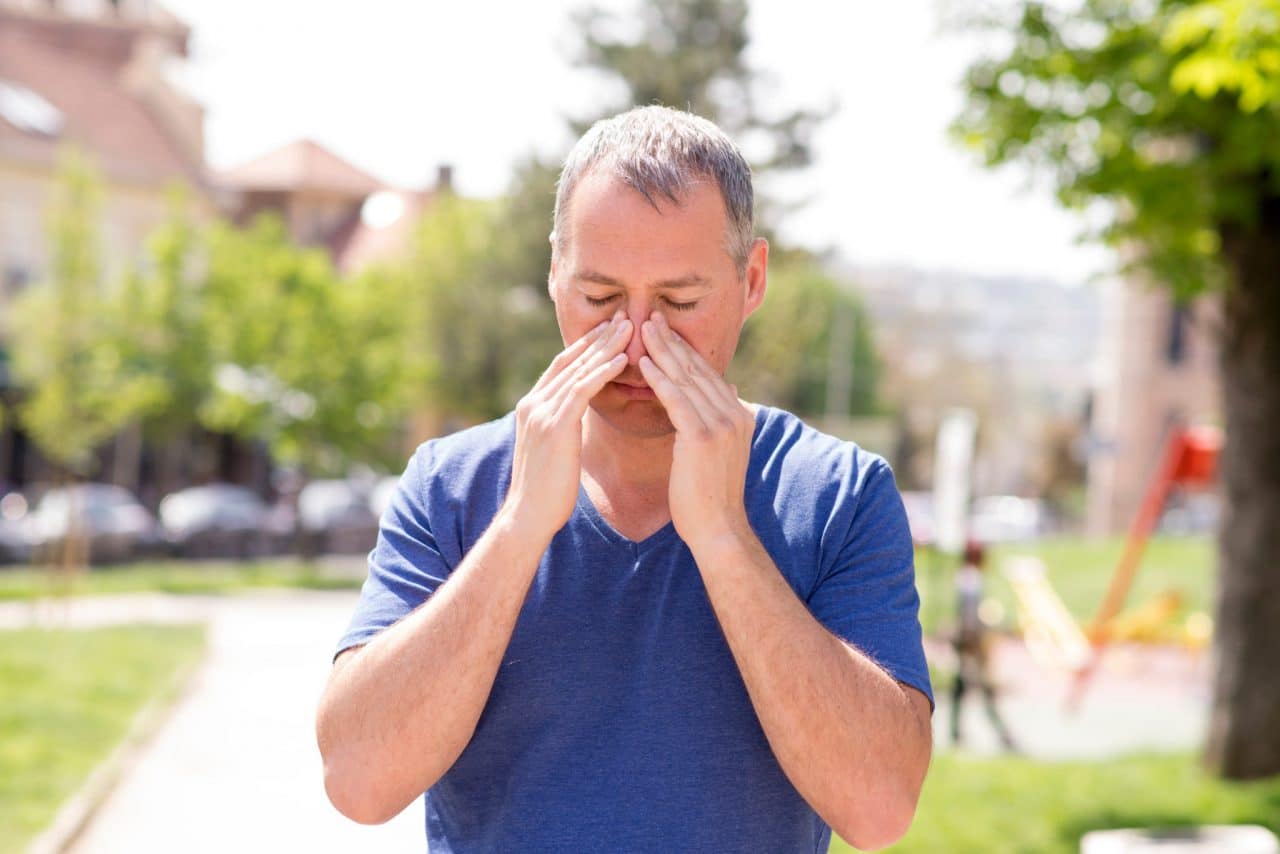Nasal polyps are benign growths within the lining of the sinuses and nasal passages. They develop when the membranes in the nose and sinuses become inflamed for a long period of time. If they grow large enough, they can block the nasal passages and sinuses and further lead to infections and breathing problems.
What Are the Risk Factors for Nasal Polyps?

Anyone can develop nasal polyps, but those with conditions that cause nasal inflammation are most at risk. Some underlying conditions that can lead to nasal polyps include:
- Asthma
- Allergies to pain relievers
- Cystic fibrosis
- Hay fever
- Chronic sinus infections
- Allergy to airborne fungi
- Other acute or chronic infections
Physicians believe that inflammation triggered by these and other similar conditions can cause fluid to build up in the mucus membranes. Over time, these pockets become fluid-filled growths and eventually form polyps.
How Do I Know if I Have a Polyp?
There are many possible signs that a nasal polyp is present. These include:
- Runny nose
- Stuffy nose
- Postnasal drip (drainage down the throat)
- Loss of taste
- Loss of smell
- Headache
- Sinus pain/pressure
- Snoring
Can Nasal Polyps Be Treated?
There is no cure for nasal polyps, but there are options for treating them. Most often, a doctor will prescribe corticosteroid nasal sprays or pills to treat polyps. Antibiotics may also be used if there is a sinus infection present.
Some cases require surgery, though the type of surgery depends on severity of the polyps. Most often, endoscopic sinus surgery is performed, which is an outpatient procedure involving the use of an endoscope (small tube with light and camera at the end) and other tools to examine the nose, remove the polyps and reopen the sinus cavities so they can drain properly.
If left untreated, complications may result. Possible complications include chronic sinus infections, obstructive sleep apnea (OSA), asthma flareups and double vision.
How Do I Prevent Nasal Polyps?
It is not always to prevent nasal polyps, but there are measures you can take to reduce your risk. For example, you should…
- Take your allergy and asthma medications as directed.
- Avoid breathing in airborne allergens and irritants that cause inflammation.
- Practice good hygiene and keep your house clean.
- Use a humidifier to keep the breathing passages moist.
- Use a saline rinse or spray to flush irritants.
For more information about nasal polyps or to talk to an ENT about treatment, call San Diego ENT today.